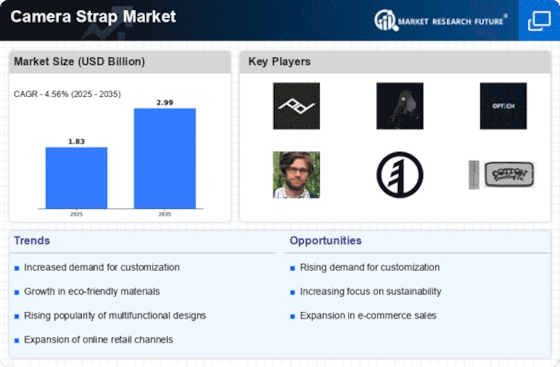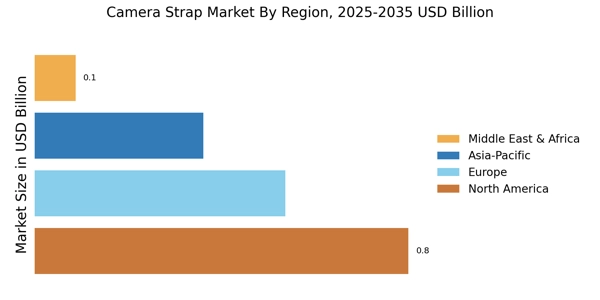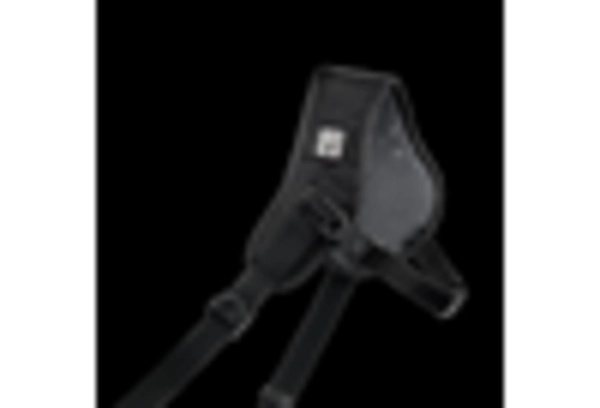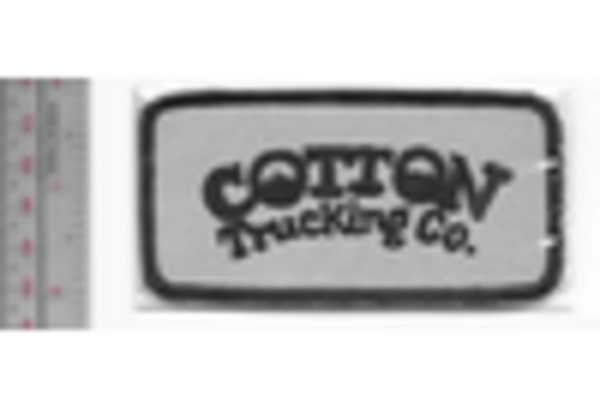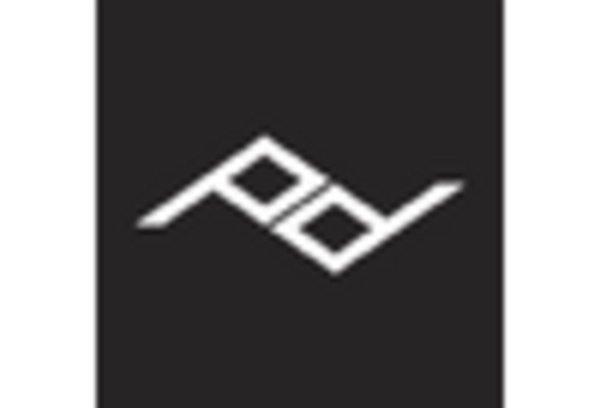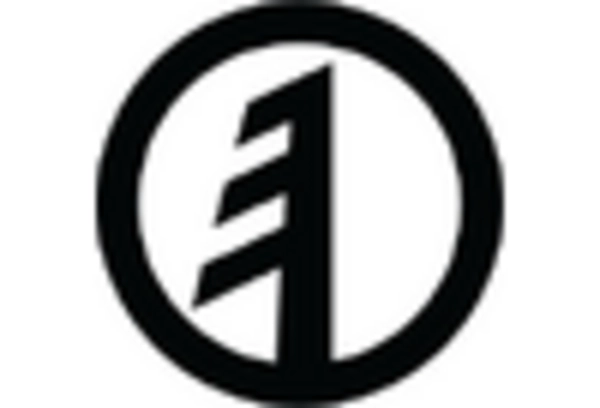Growth of E-commerce Platforms
The camera strap Market is witnessing a transformative shift with the growth of e-commerce platforms. As consumers increasingly prefer online shopping for convenience and variety, camera strap manufacturers are adapting their sales strategies accordingly. Data shows that e-commerce sales in the photography accessories sector have seen a substantial increase, with many consumers opting to purchase camera straps online rather than in physical stores. This shift not only broadens the market reach for manufacturers but also allows for a more diverse product offering. The ability to showcase a wide range of styles, materials, and functionalities online enhances consumer choice, potentially driving sales in the Camera Strap Market. As e-commerce continues to evolve, it is likely that manufacturers will invest more in digital marketing and online presence to capture this growing segment.
Increase in Photography Enthusiasm
The Camera Strap Market experiences a notable surge in demand due to the increasing enthusiasm for photography among individuals of all ages. As more people engage in photography as a hobby or profession, the need for reliable and stylish camera straps becomes paramount. Recent data indicates that the number of amateur photographers has risen significantly, leading to a corresponding increase in accessory purchases, including camera straps. This trend suggests that manufacturers in the Camera Strap Market may benefit from targeting this expanding demographic, offering products that cater to both functionality and aesthetic appeal. Furthermore, the rise of social media platforms has amplified the visibility of photography, encouraging more individuals to invest in quality camera gear, including straps that enhance their shooting experience.
Rising Demand for Sustainable Products
The Camera Strap Market is increasingly influenced by the rising demand for sustainable and eco-friendly products. Consumers are becoming more conscious of their purchasing decisions, favoring brands that prioritize sustainability in their manufacturing processes. This trend is evident in the growing popularity of camera straps made from recycled materials or ethically sourced fabrics. Market data suggests that products marketed as sustainable can command higher price points, indicating a willingness among consumers to invest in environmentally friendly options. As awareness of environmental issues continues to rise, manufacturers in the Camera Strap Market may find it beneficial to innovate and develop sustainable product lines, aligning with consumer values and potentially enhancing brand loyalty.
Technological Advancements in Materials
The Camera Strap Market is experiencing a wave of innovation driven by technological advancements in materials. New materials that offer enhanced durability, comfort, and functionality are being developed, allowing manufacturers to create camera straps that meet the evolving needs of consumers. For instance, the introduction of lightweight yet strong synthetic materials has enabled the production of straps that are both comfortable and capable of supporting heavier camera equipment. Additionally, advancements in manufacturing techniques allow for more intricate designs and customization options. This evolution in materials not only enhances the user experience but also positions brands within the Camera Strap Market as leaders in innovation, potentially attracting a broader customer base.
Influence of Social Media and Influencers
The Camera Strap Market is significantly impacted by the influence of social media and digital influencers. As photography and videography gain traction on platforms like Instagram and YouTube, influencers often showcase their gear, including camera straps, to their followers. This visibility can drive consumer interest and purchasing decisions, as followers seek to emulate the styles and equipment of their favorite creators. Market analysis indicates that products featured by influencers tend to experience spikes in sales, highlighting the power of social media marketing in the Camera Strap Market. Brands that effectively collaborate with influencers may enhance their visibility and appeal, potentially leading to increased market share.


